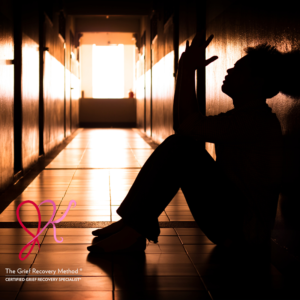What’s Grief Got To Do With Moving?
Riding my horse with a friend this past weekend inspired me to write this post. She is heading off to college in a few days and she is both excited and sad about the move. We talked about her anticipation of this exciting new adventure that awaits her, but she also shared her feelings of sadness about leaving behind her family, friends, her horse, and many other things that have been a daily part of her life as she knew up until now.
What you may never think about is that moving can generate feelings of grief. Grief is the result of any change in familiar behavior patterns. So, wouldn’t it make sense that a move across the country to a new school, a new town, leaving family/friends/horseback riding and everything you’ve done up until now, is a major change to everything familiar?
There are many different reasons people move, sometimes it is motivated by getting a new job. It might be about moving to a better house, neighborhood, or school district. It can be a move, like my friend, who is going to college. It could also be caused by the loss of a job, relationship, or financial challenges. These are just a handful of the many reasons that people move.
Whenever you move, it involves change which can be exciting and scary! With change there are multiple feelings that may arise from moving. Feelings like excitement, anticipation, concerns of all the work that’s involved in a move, worries about financial issues or the sadness of leaving people and familiar things behind. Also, the fear of the unknown that comes with any relocation. The list of changes can be overwhelming.
We all have a tendency to stuff and downplay the impact of feelings related to change in our lives and especially when it involves a move. From the time we are very young we have been told not to feel bad for loving people for logical reasons, but rarely did anyone ever encourage you to express your feelings related to a change without giving you those logical reasons why it should not bother you. The problem arises as we grow older and deal with more changes in our lives, this behavior pattern becomes implanted and continues. The old feelings will linger inside if you fail to have an opportunity to fully express them and take action to move beyond their power. We all tend to have a stockpile of stuffed feelings that we know, on a logical level, should not bother us, but they tend to surface at the oddest times when new situations trigger old memories. What no one ever told us was that feelings and emotions are anything but logical, which means that logical reasoning rarely makes us truly feel better!
The tools for dealing with the grief that comes with any change in familiar behavior patterns are covered in “The Grief Recovery Handbook”. These tools will help you deal with not only leaving behind the things that were familiar in the place from which you are moving, but with all of those relationships with friends and neighbors that are changing as well. The techniques that are covered in this book will ultimately help you deal with all of the changes you have faced in past relationships that pop up as well.





